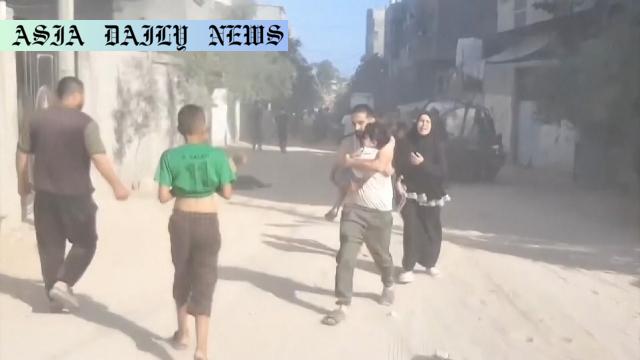Gaza crisis deepens as humanitarian concerns grow in the face of ongoing conflict, with children caught in the devastating crossfire.

UN Holds Emergency Meeting Over Gaza Crisis
The alarming hardship faced by Gaza's children amidst the ongoing conflict has drawn urgent attention from the United Nations Security Council. Convening an emergency session, members underscored the severity of the humanitarian crisis characterized by growing casualties, lack of resources, and the detrimental psychological toll exerted on the region's most vulnerable population—its children.
Children Bear the Brunt of War
UNICEF Executive Director Catherine Russell revealed shocking statistics to the UN delegates, pointing out that an average of 28 children lose their lives in the Gaza conflict every single day. She humanized this statistic by likening it to “a whole classroom of children gone daily.” This grim scenario has persisted to such an extent that it highlights not only the existential challenges of the ongoing conflict but also the tragic inevitability faced by the youngest and most innocent.
The Compounding Impact of Resource Deficiencies
As the enclave suffers daily bombardments, authorities have repeatedly pointed out the worsening situation of water, food, and medical aid shortages. A recent airstrike by Israeli forces on a water distribution point in Gaza reportedly killed 12 individuals, eight of whom were children. These instances continue to intensify calls for unrestricted humanitarian aid to the area.
Debates Within the Security Council
Against the backdrop of these tragedies, the emergency meeting saw heated exchanges between different representatives. Denmark's Permanent Representative, Christina Lassen, issued a stern reminder that humanitarian aid should not be politicized. Meanwhile, Israel's representative argued that humanitarian measures had already been facilitated, citing the delivery of tons of baby formula supplies.
The Complexity of Blame Amidst Tragedy
The discussions also raised contentious narratives about the root causes fueling the crisis. Israel accused Hamas of using children as shields and instilling hatred from a young age, while critics of Israel highlighted the country's military strategies as aggravators of civilian and child suffering.
The meeting ended with no solid resolution, but a resounding global plea emphasized alleviation of suffering for children caught in the brutality of armed conflict.
Commentary
The Need to Prioritize Humanitarian Aid
In moments of devastating conflict like the Gaza crisis, one of the most pressing issues should always be ensuring humanitarian access to those in need. Sadly, this goal appears not only complicated but also deeply politicized. Aid should never be a pawn in political or military maneuvers, especially when children remain the prominent victims. If nothing else, an international community that upholds humanity must do better to protect the uninvolved and innocent.
Children Caught in the Crossfire
The harrowing statistic cited by UNICEF—the comparison of losing an entire classroom's worth of children every day—should shake the sensation-driven diplomatic sphere out of inaction. When 28 children die each day, it raises questions about the cost of ongoing military operations versus their strategic results. Such suffering, left unchecked, builds psychological scars that lead to generational issues requiring significant rehabilitation.
A Path Forward
Conflict in any area of strife is highly intricate, and solutions may not be swift or easily actionable. However, the steady degradation of Gaza underlines a critical moral imperative to remove barriers to humanitarian relief and fight political lethargy. International dialogue, mediation, and innovative peace initiatives will need to reemerge stronger to avoid greater chaos and hopelessness.
Final Call to Action
The idea that children, representing the hopes and futures of any society, are dying in the tens daily, should inspire immediate collective action by governments, NGOs, and civil society worldwide. Their tragedy—whether inflicted intentionally or not—speaks to a failing system of global protection measures. It is high time to focus on humane, unbiased strategies that prioritize life over conflict.


